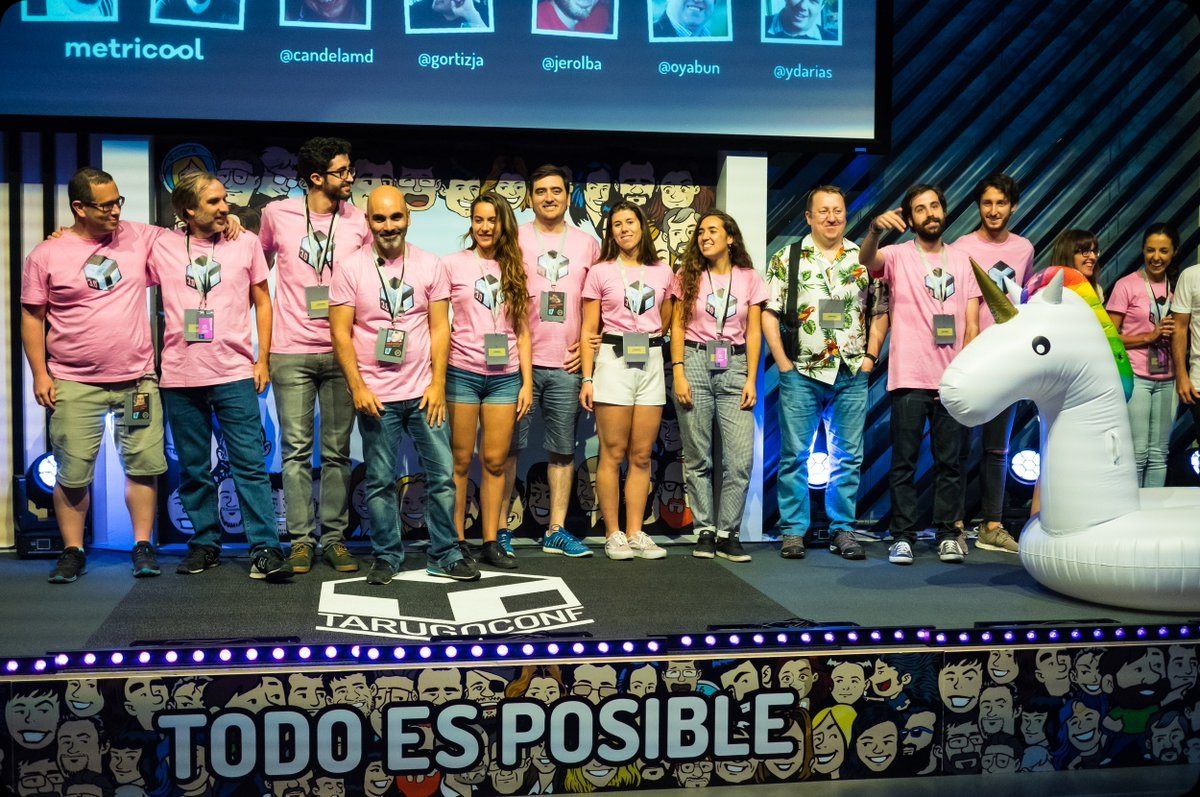The following article is the second part of the conversation held with David Bonilla Fuertes a few weeks ago in relation to the technical recruiting system in Spain.
Bonilla has a broad view on the subject, and in the last article we talked about it and we told you about the layer that wraps many of the decisions when it comes to hiring a technician and that, after all, makes up a cultural macrosystem based on the transaction of people. A wrapping that finally disappears in the day-to-day and that ends up turning into a series of malpractices in hiring and in the subsequent professional development of employees at the company. Summarizing, today I’m bringing you the part in which we focus on issues which are, apparently, more trivial or, to put it another way, of less importance, but of great significance both for the recruitment process and the person itself.

The job offer written "carelessly" and "with no love"
Among all those little big details we come across as “users” in the recruitment market, one of them makes reference to how the job offer is written. In fact, these offers can generally be improved in many aspects. Writing them up or giving them any other kind of format is usually thought of as something of little importance within the whole process of hiring someone, when it shouldn’t be like this, given its important repercussions.
<<< "Companies should be careful in whatever they produce, including job offers" >>>
Among the most important errors, Bonilla highlights the following:
1. Succumb to using basic concepts with regard to the information we provide on the position. Sentences such as “Leading company in the sector” indicate that very little effort has been dedicated to this part of the process.
2. Not being careful enough when writing up the technical details of the positions. Normally, this part should be written by a technician, given the peculiarities of each position, but due to time issues, this is not usually done and, according to David, “the mistake is that most companies don’t allocate time to recruiting”.
3. Specifying in the offers only the tools that the future employee is going to need when starting to work, but not mentioning why he/she is going to need them. An example of this would be the sentence “we’re looking for a Java programmer” and other similar ones and, from Bonilla’s point of view, “this can be interpreted by a more senior candidate as a meat mincer”.
And the thing is that, to David, this kind of language in job offers reveals that companies are only looking for employees for a specific end, like, for example, Java programming, without worrying about any other future professional development in the company.
4. Requiring too much knowledge. That is to say, over-qualified profiles with more years of experience than the needed ones for the specific tasks of a given position, as well as other upward trend requirements requested by companies. This is something that is done quite frequently without being really necessary, and it is done just because no time has been allocated to thinking what will really be needed for a specific position.
<<< "Companies sometimes ask for more requirements than they need" >>>
5. Careless and very little inclusive language, where gender, age, and other diversity factors are practically not taken into account. Bonilla also tells me that “this aspect can be taken care of in the written offer”. Listen to the following audio recording:
<<< "The use of sexist language can cause candidates to back out of the process" >>>
To wrap up this series of improvements in job offers, Bonilla talks to me about “highly motivated companies”, referring to those offers in which we find sentences such as “[...] we’re looking for super-motivated person who would give his/her life for the company [...]”, etc.
Offers in which an excessive commitment is required to employees without the company deserving it yet. These offers are not very effective for senior candidates with a broad experience in the sector.
The title of the offer does matter
Taxonomizing or giving a name to a technical job position is a challenge. There are certain positions in which there is no consensus. For example, on what a “senior developer” or a “full stack developer” are. Bonilla’s advice on this subject is double and complementary:
-
To standardise the name of the position as much as possible
- To develop a bit more the competences or skills section, what you expect of the candidate
And the thing is that there are certain performance categories that are risky to use because they influence the offer’s effectiveness. In the following audio recording you will find some figures on this subject:
What you shouldn't show in your CV as a candidate
Let us move forward and stop talking about what companies looking to hire employees do wrong, and comment on what a technician who is looking for a job does wrong and, specifically, about the data that as a candidate you show in your CV.
If we have previously specified certain practices in the written offer that scare off some candidates, the same thing happens with our CV. There are certain data that may shoo certain companies where we could start working at. In particular, according to Bonilla and the feedback that he has gathered himself with the help of other recruiters, the most sensitive data are those which are non-objective and that can be misinterpreted in multiple ways if they are not taken into account within a broader context. This kind of data are:
- Personal motivations. For example, a candidate states in his/her CV that he/she likes hierarchically flat organizations. This statement, without any other context, might be interpreted by a recruiter as: “he/she has problems with complying with the rules”, which can make the recruiter discard your candidacy.
That’s why it is advisable to leave every single thing that could be interpreted in different ways for the personal interview, where we will have the opportunity to explain it in a better way and provide more context about it.
<<< "You have to use strategies to avoid biases" >>>
Biases as an employer
In relation to the last point, we now talk about other biases as a recruiter. Not only the interpretable data with very little context can be assessed in an unequal way and under arbitrary criteria depending on the candidate. Gender or sex biases can be avoided too by concealing the information from the employer.
The concealment of this kind of data is more common in countries such as the U.S., and just a few Spanish companies use this method nowadays. Manfred, the recruitment project Bonilla runs, is one of them.
The "person=tool" mentality
David talks to me very passionately about what he does, but also with a bittersweet aftertaste for which he blames a sector in which nobody trusts anybody; nor candidates, neither companies, or even recruiters. He talks about disrespect towards the recruiter’s work, and about the fact that you really need to like a lot the candidate selection world, since you need to have an inexhaustible patience.

This is the moment when I recall two words I wrote down at the beginning of our conversation and that have given me a key pattern which I think is really necessary to bear in mind at this point, which are the words “CARE” and “LOVE”. Bonilla has talked to me about recruiting with “care and love”, and I had heard other recruiters talk about quality, but not of something emotional in this system and as a basis of the business. David talks about quite a dehumanised chain process.
For that reason, and to top it all off, I would like you to listen to David’s speech, and not to my interpretation. I encourage you to do a self-analysis from the part of the recruitment chain you are part of, either if you are a recruiter, a candidate or a company who is looking to hire.
Listen to these audios and let David’s words swirl around your mind because, to me, this is the key to the change towards a more humanised system which is based on people. Something as simple and as complex as:
Getting to know the stories behind each person, and caring about them.
Bon a petit:
<<< "You have to be in a company that values you, that they know you" >>>
<<< "Lo peor es hacer perder el tiempo tanto a la empresa, como al candidato" >>>



